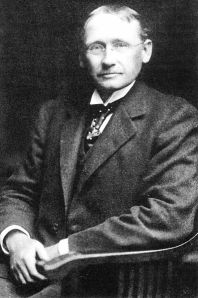Because I have hypothesized, and truthfully without consciously knowing the cultural origin of my own hypothesis, that Scientific Management (“Taylorism”) may be at the root of some of our non-academic ideas on workflow, I’ve thought to try to study it a bit more in an effort at becoming more aware of the cultural context of my own assumptions.
Today I ran some searches on Taylorism and Unions because it struck me this morning that it’s interesting Scientific Management and Unions all appeared during the same time period.
I found some interesting work.
First, this review of a book by Milton J. Nadworny, published by Harvard in 1955: (more…)


